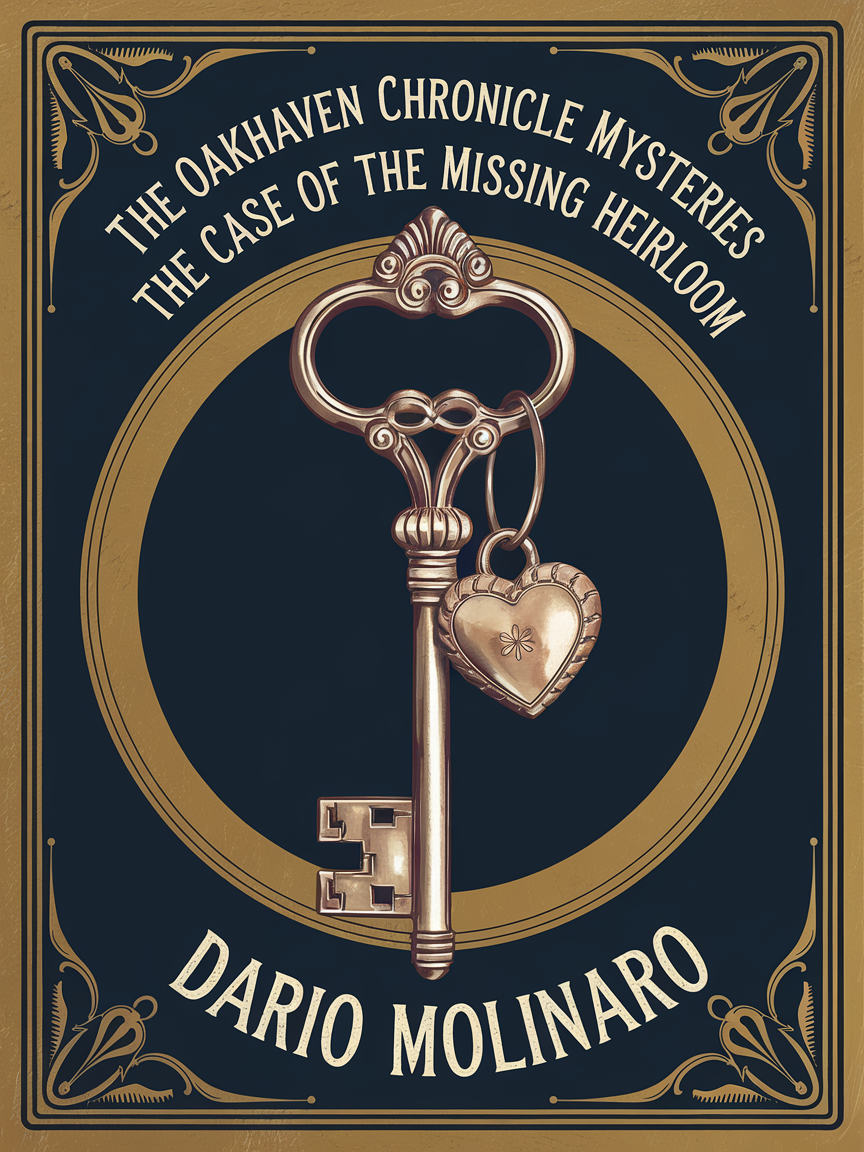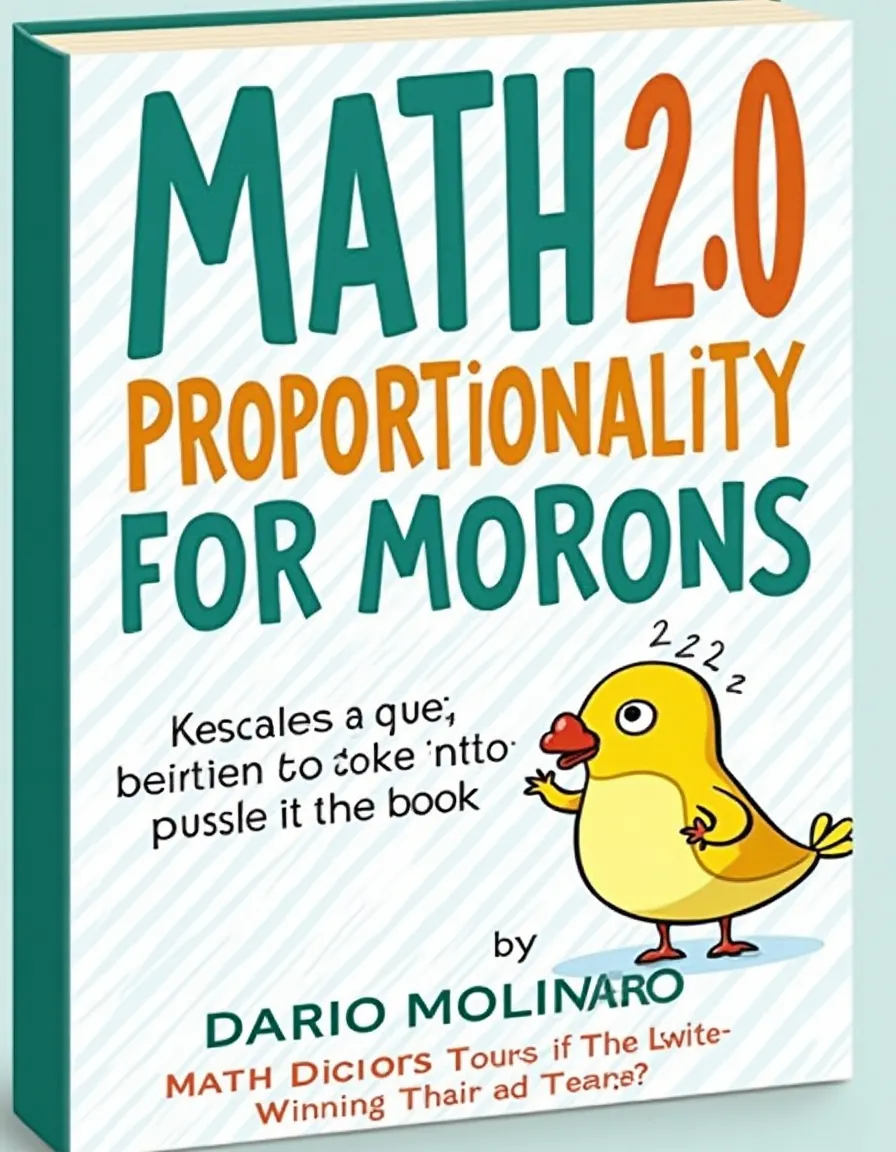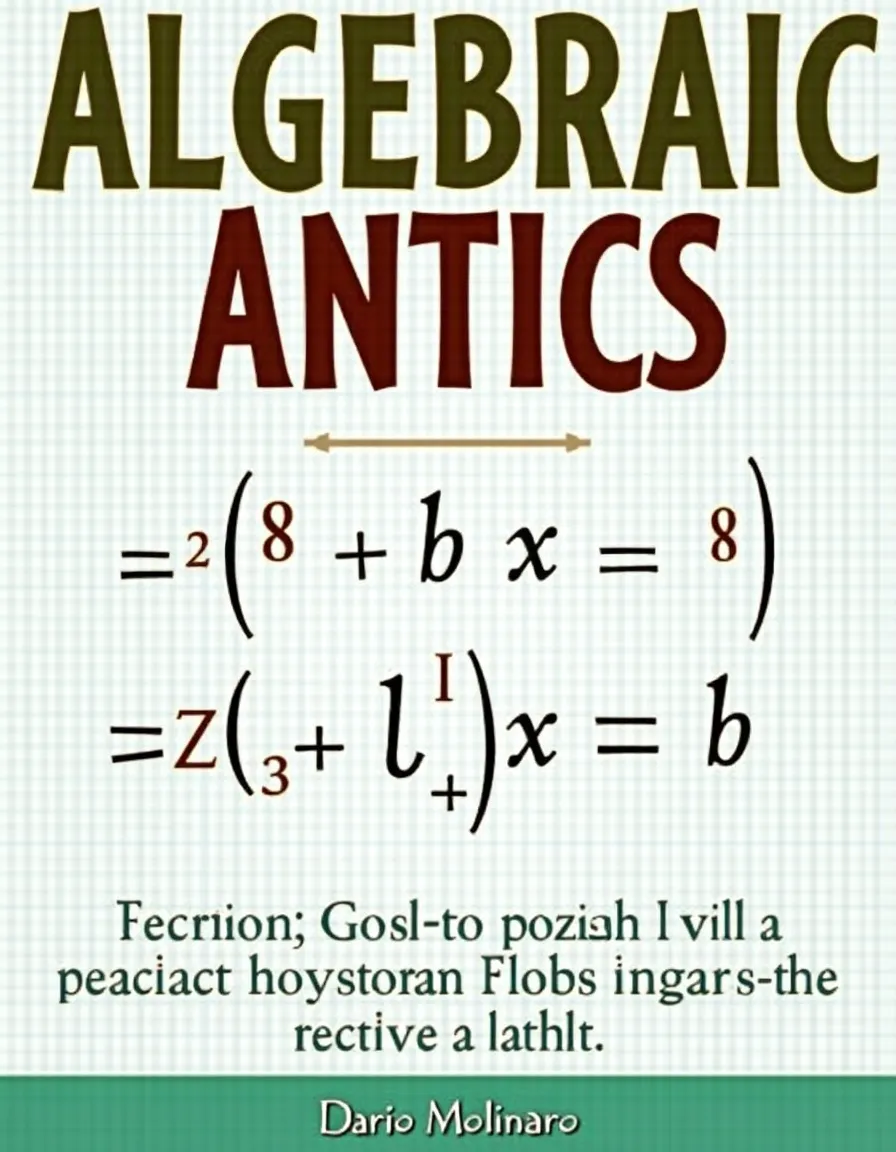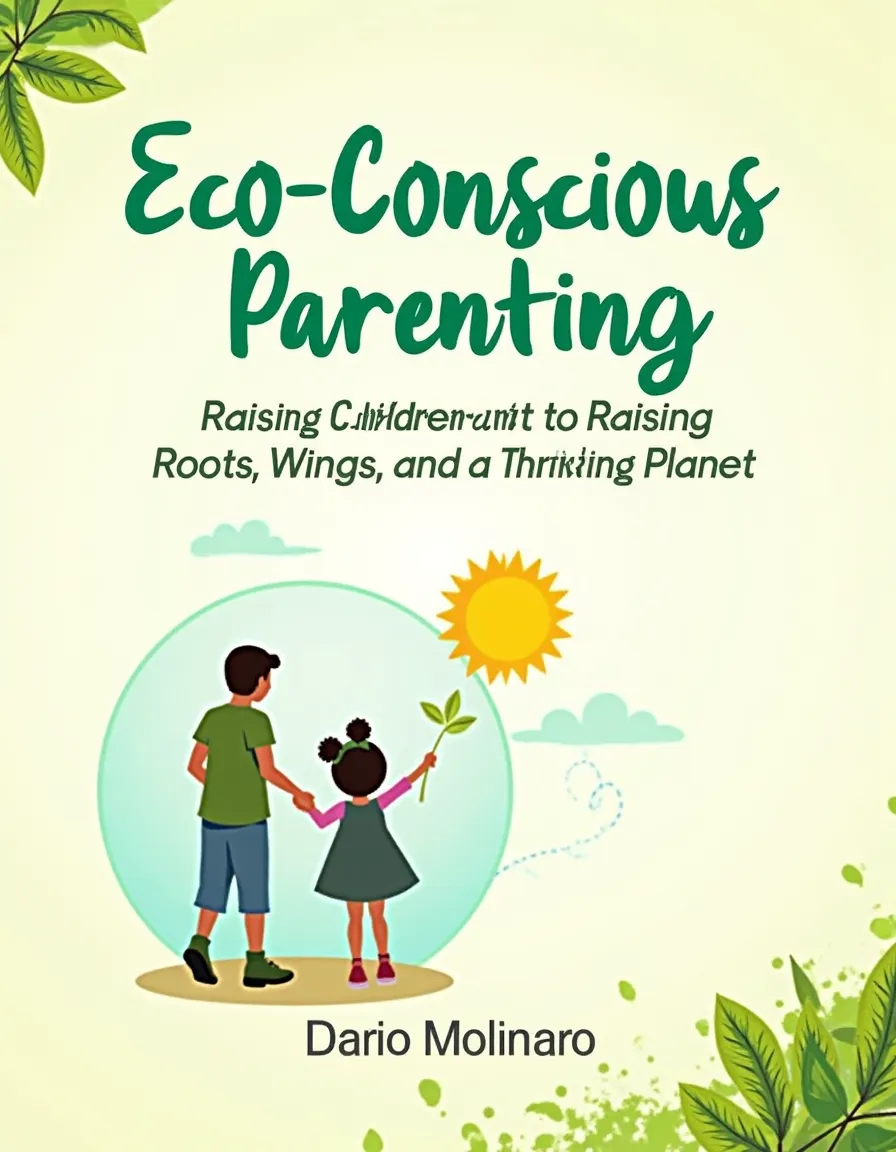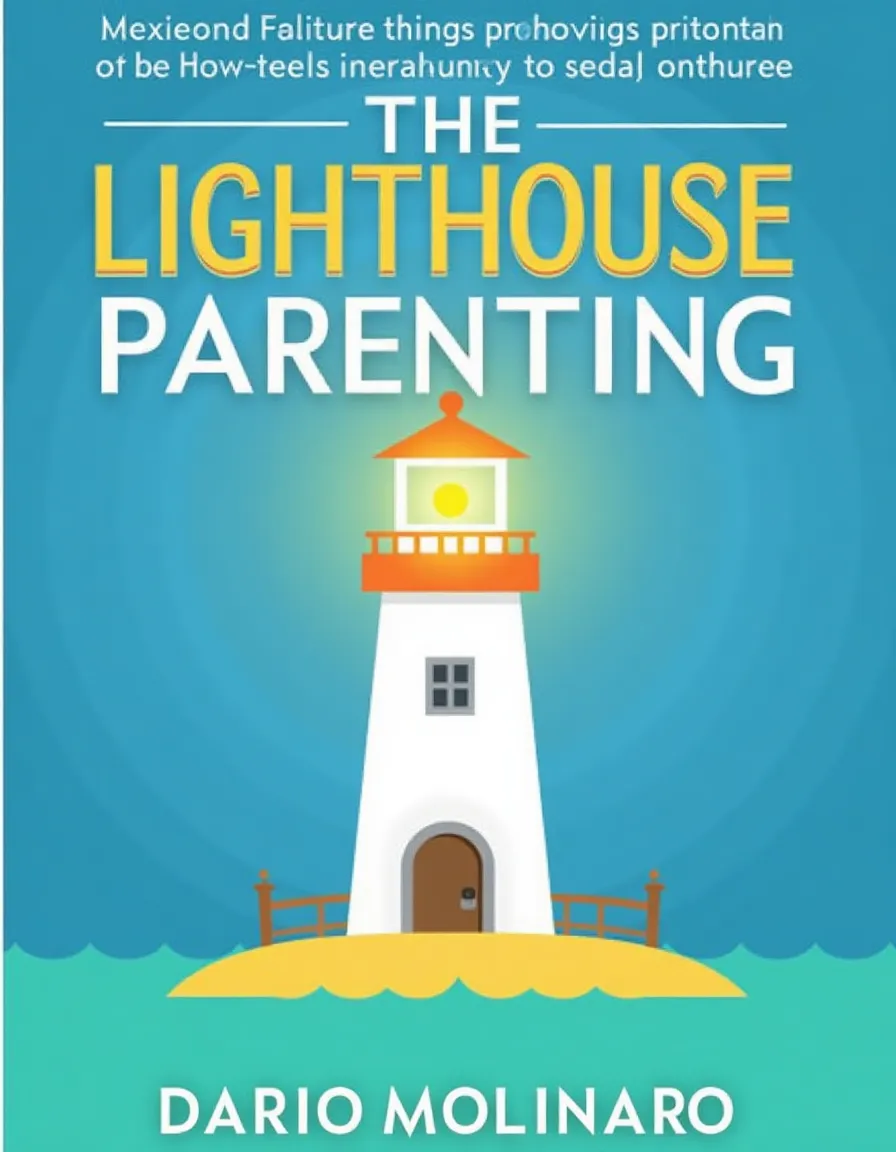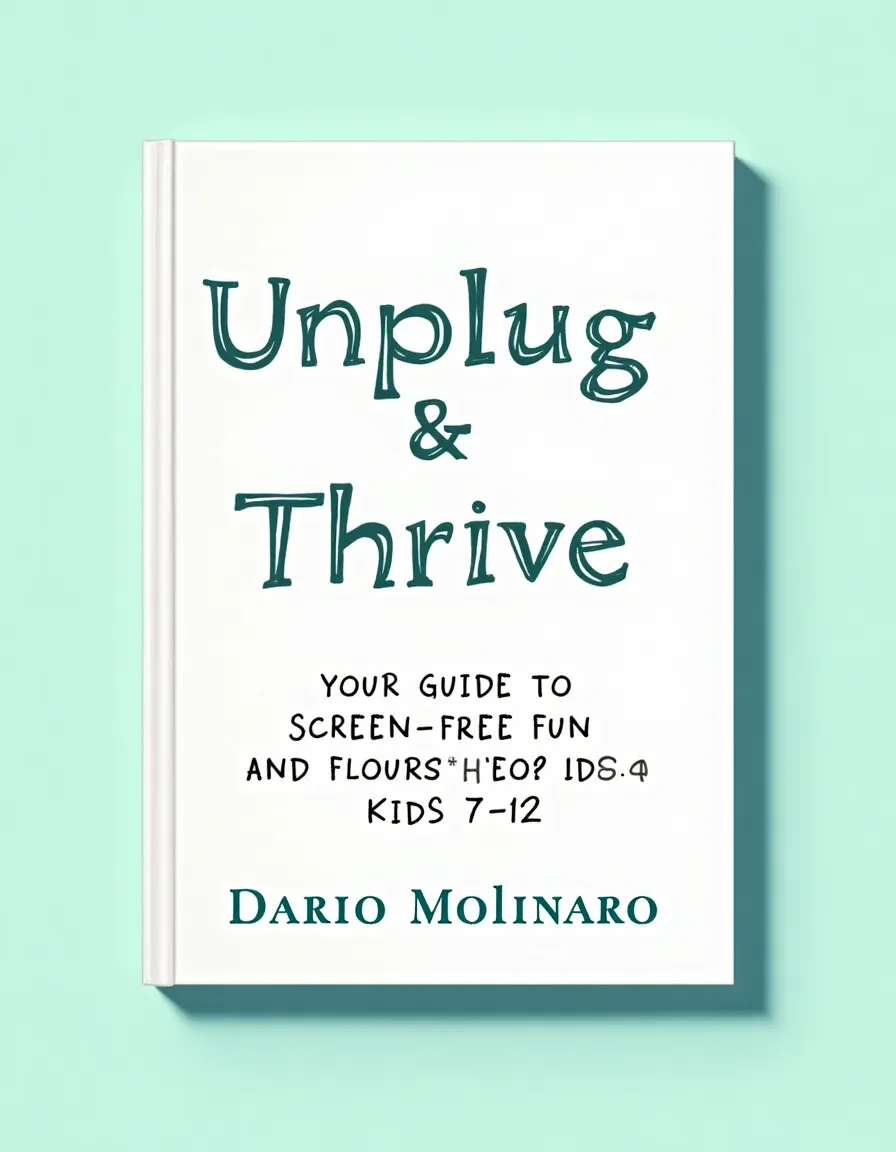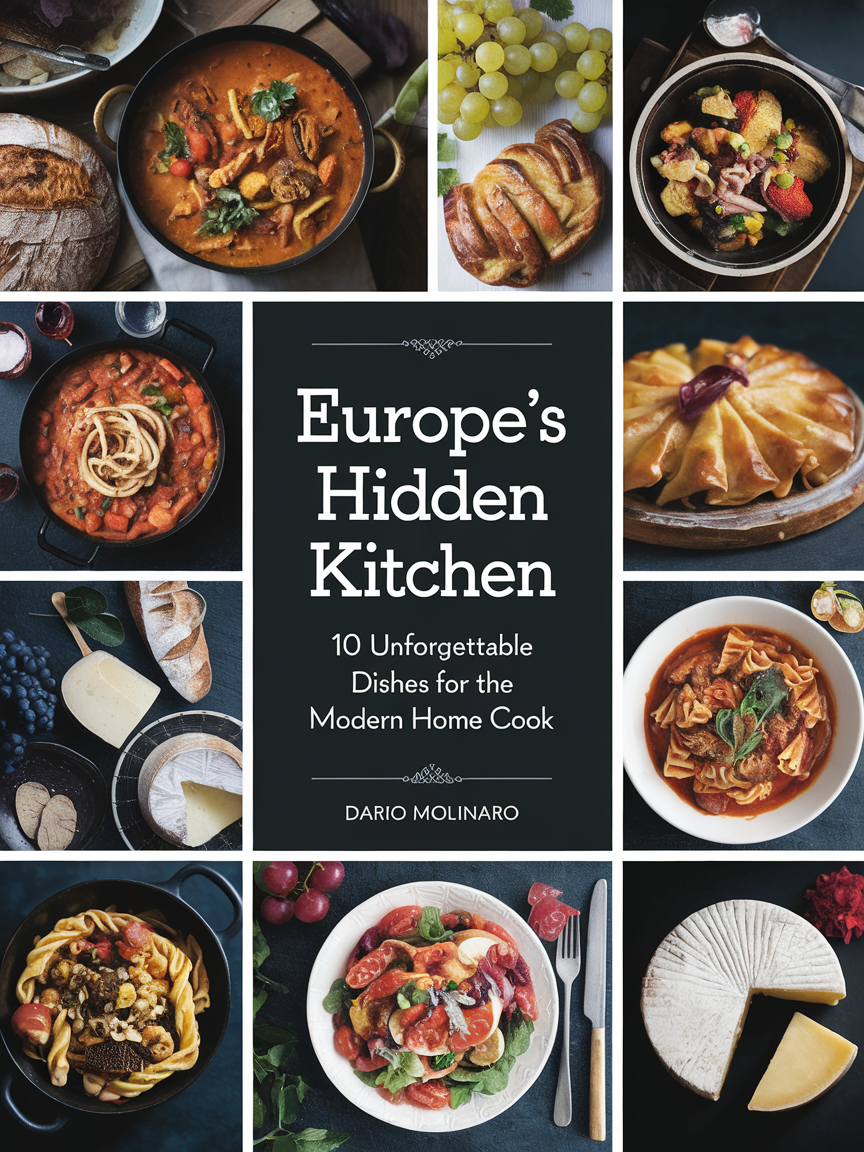Dario Molinaro
Biography
Aspiring Author
Reviews Summary
3.9
Rating Breakdown
18 total ratings
Aspiring Author
3.9
Rating Breakdown
18 total ratings
This was a really enjoyable mystery that kept me guessing. The plot, with its chapter-by-chapter puzzles, felt well-paced and engaging. Eleanor Vance is a compelling protagonist, and I appreciated her sharp, inquisitive nature. Dario Molinaro's writing style is clear, making the story easy to follow. I particularly liked the dual-language aspect, which was a smart way to learn new vocabulary. The way each small incident connected to the larger mystery was cleverly done. It was satisfying to see Eleanor piece together the clues that the police missed. The surprise about the supposed victim was a great twist that added to the intrigue. I found the inclusion of vocabulary exercises and comprehension questions very helpful for practice. The town of Oakhaven itself felt like a character, with its hidden secrets. I would definitely recommend this to anyone looking for a fun and educational mystery read. Overall, a solid and well-crafted addition to the Oakhaven Chronicle Mysteries series.
The Oakhaven Chronicle Mysteries: The Case of the Missing Heirloom is a thoroughly enjoyable and well-crafted mystery novel. The plot skillfully weaves together individual chapter puzzles that ultimately build towards a compelling central enigma, keeping the reader engaged. Eleanor Vance is a captivating protagonist whose relentless curiosity and sharp intellect make her a joy to follow through Oakhaven's secrets. Dario Molinaro's writing style is accessible and engaging, perfectly suited for the target audience while still providing a solid mystery narrative. The dual-language format is a significant asset, making the learning aspect seamlessly integrated into an exciting crime fiction experience. The pacing of each chapter's puzzle, leading into the overarching mystery, felt very satisfying. I particularly appreciated how Eleanor's skepticism pushed the narrative beyond easy conclusions. The introduction of the mysterious stranger added a layer of intrigue that was well-handled. Discovering the supposed victim was alive was a brilliant twist that elevated the central mystery. This book is highly recommended for anyone looking for an engaging mystery with an educational benefit. It truly delivers on its promise of being both thrilling and educational. The structure of individual puzzles feeding into the main case was exceptionally well executed.
"The Case of the Missing Heirloom" offers a unique and engaging mystery experience, especially for its target audience. The plot unfolds with a series of intriguing puzzles, though some connections felt a bit stretched at times. Eleanor Vance is a compelling protagonist, her journalistic curiosity driving the narrative forward effectively. The dual-language format is a standout feature, making learning enjoyable alongside the unfolding crime. I found the inclusion of vocabulary exercises and comprehension questions to be very beneficial for language acquisition. The mystery itself, while a bit predictable in its twists, kept me turning pages to see how it would resolve. Chief Brody's character felt a little underdeveloped, serving more as an obstacle than a fully realized individual. The pacing of the short stories within each chapter worked well, providing digestible segments of the overall mystery. I appreciated how the author wove in the cultural context and smaller town dynamics of Oakhaven. While the resolution was satisfying, some of the underlying motives could have been explored more deeply. This book is a great option for German speakers looking to improve their English through enjoyable crime fiction. It's a solid introduction to a series that clearly aims to educate as well as entertain.
This book definitely made proportionality less intimidating, though it didn't quite reach perfect. The explanation of direct and inverse relationships was clear and broken down well for beginners. Molinaro's humor is front and center, making some pretty dry math concepts actually entertaining to read. I appreciated the effort to make math accessible, and the funny examples did help solidify some ideas. However, I found some of the "moron" phrasing a bit excessive at times, even if it was intended humorously. While it covers the basics well, it didn't delve much deeper into more complex applications of proportionality. It's a good starting point if you're really struggling and need a laugh while learning. I would recommend it for someone who finds traditional math texts a bit overwhelming. The step-by-step instructions were helpful for solving those single-variable equations. It's a compact guide that attempts to teach the unteachable in a lighthearted way.
This book genuinely made tackling algebraic equations less intimidating. The explanations for solving single-variable equations were clear and progressive, even for someone who finds math a challenge. Dario Molinaro's humorous examples, like comparing equation balancing to a tug-of-war, were particularly memorable. The core theme of making math accessible and enjoyable really shines through the witty phrasing. I appreciated how the book built confidence step-by-step, transforming potentially confusing concepts into understandable puzzles. It’s a refreshing approach that could benefit many students or anyone needing a refresher on basic algebra. While the content is focused, it covers the essentials of single-variable equations effectively. The book’s compact nature makes it easy to dip into for quick explanations or practice. It’s a valuable resource for those who want to conquer algebra with a bit of laughter. I found myself actually looking forward to working through the problems. This is a solid guide for anyone who wants to feel more comfortable with fundamental algebraic concepts. It successfully demystifies what many consider a difficult subject.
"MATH 2.0: Proportionality for Morons" successfully demystifies a challenging topic with a lighthearted approach. The book effectively breaks down direct and inverse proportionality using practical, often humorous, scenarios. Molinaro's writing style is conversational and engaging, making complex ideas accessible without condescension. While the humor is generally effective, a few jokes occasionally detract from the clarity of the mathematical explanations. The step-by-step instructions are easy to follow, providing a solid foundation for understanding basic equations. It's a valuable resource for anyone who finds traditional math instruction intimidating or uninspired. The book is particularly useful for students needing supplementary material or a fresh perspective on proportionality. It manages to be both educational and entertaining, a rare combination in math guides. The consistent application of relatable examples helps solidify the learning process significantly. I appreciated the author's effort to make a sometimes-dry subject enjoyable and understandable. While not a perfect pedagogical tool, it certainly achieves its goal of making proportionality less daunting. This is a solid option for self-learners or teachers seeking innovative ways to present mathematical concepts.
Algebraic Antics delivers a refreshing approach to mastering single-variable equations. The book effectively breaks down complex concepts with witty examples and clear, step-by-step guidance. Molinaro's writing style is engaging and humorous, making the learning process genuinely enjoyable. The core theme of making algebra accessible and even fun is consistently reinforced throughout. I found the explanations particularly helpful for solidifying my understanding of foundational algebraic principles. While the humor generally landed, a few jokes felt slightly forced, detracting a touch from the otherwise smooth flow. The compact nature of the guide makes it an excellent resource for quick review or focused study. It’s a valuable tool for students, parents, or educators seeking a more approachable introduction to algebra. I would recommend this book to anyone who has previously found algebra intimidating or tedious. Overall, it successfully transforms a potentially dry subject into an approachable and even entertaining endeavor.
This book truly demystifies proportionality in a way I haven't seen before. Dario Molinaro has a knack for making even the trickiest inverse relationships feel straightforward. The humor woven throughout the explanations, like the examples with pizza toppings, genuinely made learning enjoyable. I particularly appreciated how the book breaks down solving basic equations with a single variable into digestible steps. It’s refreshing to find a math text that prioritizes understanding over rote memorization. This feels like the ultimate guide for anyone who’s ever dreaded a math class. The author’s approach is both innovative and refreshingly compact, perfect for quick study sessions. I can honestly say I feel more confident tackling proportionality problems after reading this. This is a fantastic resource for students, parents, or anyone needing a clear, fun refresher. I wholeheartedly recommend MATH 2.0 to anyone who wants to conquer proportionality.
"Algebraic Antics" is a book with a charming premise aiming to make algebra accessible. The explanations for single-variable equations are indeed presented in a lighthearted manner. Dario Molinaro's attempt at humor through examples is commendable, though the wit doesn't always land consistently. The goal of making complex concepts 'teachable' is present, but the depth needed for true mastery feels somewhat limited. It’s a compact guide, and while it offers a fresh perspective for beginners, some might find it a bit too simplified. The book certainly tries to transform math from a foe to a friend, and it partially succeeds for some readers. It's a decent starting point for those truly intimidated by algebra, but it doesn't quite reach revolutionary status. For its intended audience, it provides a gentler introduction to the world of equations.
This book offers a genuinely helpful and encouraging approach to eco-conscious parenting. It successfully breaks down complex sustainability topics into manageable, everyday actions for families. The author’s personal experiences as a teacher and father lend a relatable and authentic voice to the content. I appreciated the emphasis on "guilt-free" changes rather than striving for unattainable perfection. The practical advice on topics like creating a green nursery and mindful consumption was particularly useful. It provides a good balance between science-based insights and anecdotal evidence. While the structure was logical, I felt some chapters could have benefited from more detailed examples. The concluding action plans and checklists are a strong takeaway for immediate application. Overall, it’s a valuable resource for parents looking to integrate sustainability into their family life. This guide is well-suited for parents new to eco-friendly practices seeking actionable steps. It successfully fosters a mindset of care and responsibility towards the planet. I would recommend this book to friends looking for practical ways to raise environmentally mindful children.
Dario Molinaro's "Eco-Conscious Parenting" is a truly valuable resource for parents navigating the complexities of sustainability. The book excels at providing practical, actionable advice without the burden of eco-perfectionism, a welcome perspective for busy families. Molinaro's writing is accessible and warm, drawing effectively from his experiences as both an educator and a father. The clear structure, moving from foundational mindsets to specific areas like nurseries and food, makes the content easy to digest and implement. I particularly appreciated the emphasis on fostering a love for nature and the thoughtful guidance on teaching children about waste and circular thinking. The inclusion of eco-checklists and action plans adds tangible tools for readers to immediately put knowledge into practice. The book successfully balances providing scientific insights with relatable anecdotes, making complex topics feel approachable. It offers a holistic approach, connecting individual family choices to a larger legacy for future generations. This guide is highly recommended for any parent seeking to raise mindful, earth-conscious children in a manageable and joyful way. The book truly empowers parents to make a positive impact, starting right at home.
Dario Molinaro's "Eco-Conscious Parenting" is a truly wonderful guide for any parent wanting to instill a love for our planet in their children. The book masterfully breaks down complex environmental topics into manageable, everyday actions that feel achievable rather than overwhelming. Molinaro’s writing style is exceptionally warm and relatable, drawing you in with personal anecdotes and expert insights that resonate deeply. The core message of raising children with both roots and wings, grounded in respect for the Earth, is beautifully conveyed throughout the chapters. From creating a green nursery to fostering a love for the outdoors, each section offers practical, guilt-free advice for busy families. I particularly appreciated the emphasis on small, joyful changes, which perfectly aligns with the philosophy of "Little Hands, Big Impact." The inclusion of practical action plans and eco-checklists at the end provides concrete steps for immediate implementation. This book is a valuable resource that empowers parents to nurture their children's connection to nature and build a more sustainable future. I highly recommend "Eco-Conscious Parenting" to anyone seeking to raise environmentally aware and responsible children.
This book really resonated with me as a parent looking for a balanced approach. The "Lighthouse Parenting" concept feels both intuitive and well-supported by research. I appreciated how Molinaro shared his experiences as a teacher and father to illustrate practical strategies. The focus on fostering independence and resilience without abandoning necessary boundaries is spot on. It offered concrete advice for navigating screen time and building emotional intelligence in kids. The "Resilient Kids Blueprint" provides a helpful framework for implementing these ideas at home. I found myself reflecting on my own parenting choices throughout the book. This is a valuable read for any parent feeling overwhelmed by conflicting advice today. It gave me a sense of calm and a clearer path forward in raising my children. I learned a lot about how to be a supportive yet empowering guide for my kids. I highly recommend this to anyone seeking a thoughtful, research-backed parenting guide. It’s a book I’ll definitely revisit as my children grow.
This book offers a promising framework for a balanced parenting approach in the digital age. Molinaro introduces the "Lighthouse Parenting" model as a middle ground between extremes, aiming to foster resilience and independence. The blend of classroom experience and research on topics like emotional intelligence and screen time is a strong foundation. I appreciated the author's personal stake as a father, which grounds the strategies in relatable scenarios. However, the pacing felt a bit uneven at times, with some sections delving deeper than others. The core concepts of boundaries, natural consequences, and encouraging problem-solving are well-articulated. While the "Beacon Parenting" approach is clear, the "Resilient Kids Blueprint" could have benefited from more concrete, step-by-step implementation guidance. The writing is clear and accessible, making complex ideas easy to digest for busy parents. It would have been helpful to see more diverse family structures addressed within the examples. Ultimately, it provides valuable insights for parents seeking a more intentional approach to raising capable children. I would recommend it to parents open to exploring research-backed strategies for fostering autonomy. It’s a solid contribution to the parenting literature, though it leaves some room for further exploration.
The Lighthouse Parenting offers a compelling concept for navigating modern parenting challenges. Molinaro's "Beacon Parenting" approach is an interesting attempt to bridge the gap between extremes. I appreciated the author's intention to combine classroom experience with research on resilience. However, the "Resilient Kids Blueprint" and other branded terms felt a bit repetitive. While the book provides a clear framework, I found some of the practical strategies could have been more detailed. The dual role of teacher and father provides a unique perspective on child development. The emphasis on emotional intelligence and reducing screen time is certainly relevant. Yet, the book sometimes leans more towards theory than actionable, step-by-step guidance. I did find the core message of being a steady, supportive guide for children resonated. The book’s intention to foster independence and problem-solving is commendable. It offers a foundation, but parents might need to seek additional resources for deeper implementation. Ultimately, it's a well-intentioned guide that could benefit from more concrete examples.
Unplug & Thrive offers a really helpful perspective for parents feeling overwhelmed by screen time. The book provides a solid overview of the science behind screen time's effects on kids aged 7-12, which was well-explained. I appreciated the focus on growth mindset and how it connects to motivation and self-esteem in the early chapters. The practical, budget-friendly activities, like the D&D suggestion and themed cultural nights, were a definite highlight. It balances the importance of physical activity and the surprising benefits of boredom for creativity, which felt crucial. While the advice was sound, some sections could have been a bit more detailed in their practical application. The demystification of "productive" screen time was also a valuable takeaway for understanding balance. Overall, it’s a valuable resource for parents seeking to foster healthier childhoods in a digital world.
Unplug & Thrive is a truly valuable resource for parents seeking to guide their children through the digital age with intention. Molinaro expertly blends scientific insights into screen time's effects with actionable, creative solutions for families. The book's structure logically builds from understanding the "why" of unplugging to the "how" of engaging activities. I appreciated the early discussion on growth mindset and how screens can impact motivation and self-esteem in the 7-12 age group. The chapter on fostering creativity through boredom was particularly insightful, offering a refreshing perspective on downtime. The inclusion of specific, low-prep, budget-friendly family activities, like the D&D suggestion and themed cultural nights, is a significant strength. The distinction between productive and detrimental screen use is demystified, providing parents with a more nuanced approach. The emphasis on physical activity and its crucial role in development is well-articulated throughout. Molinaro's writing is accessible and engaging, making complex topics understandable for parents. This guide genuinely empowers parents with practical strategies to reconnect with their children and promote healthy flourishing. I highly recommend Unplug & Thrive to any parent concerned about their child's screen time balance.
"Unplug & Thrive" offers a timely and much-needed exploration of childhood screen time for parents. The book successfully breaks down the complex science behind screen time's impact on children's self-esteem and motivation. Molinaro's writing is clear and accessible, making the scientific concepts easy for parents to grasp and apply. The chapter on boredom as a catalyst for creativity is particularly insightful, a concept often overlooked in modern parenting. I appreciated the inclusion of practical, budget-friendly activities, though I wished for more variety in the family activities. The Dungeons and Dragons suggestion was fantastic, truly capturing the spirit of imaginative play. While the book emphasizes a balanced approach, it sometimes felt a little heavy on the "why" and could have offered even more "how-to" examples. Overall, it's a valuable resource for parents looking to foster a healthier relationship with technology in their 7-12 year olds.
